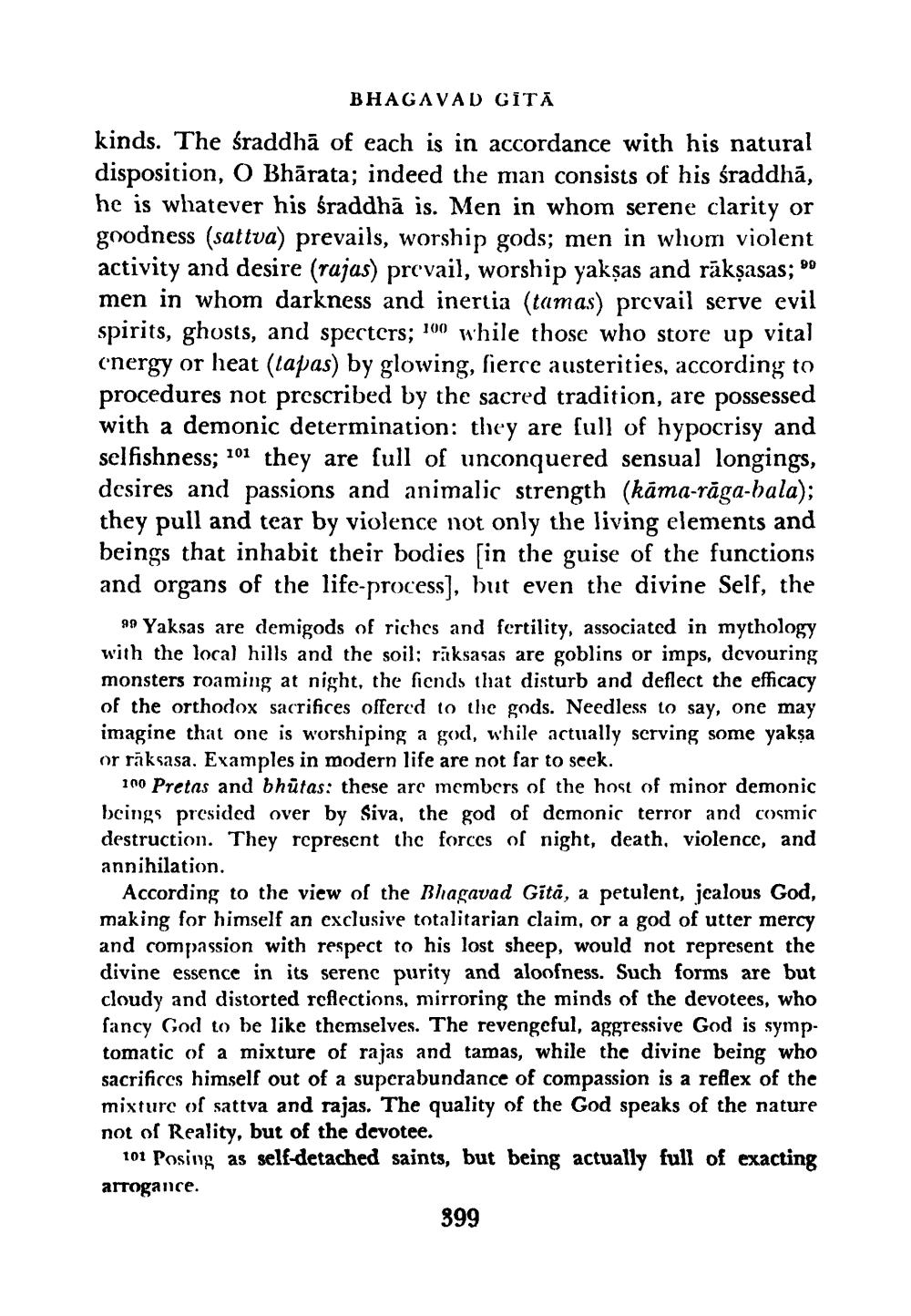________________
BHAGAVAD GITĀ
kinds. The śraddhā of each is in accordance with his natural disposition, O Bhārata; indeed the man consists of his sraddha, he is whatever his sraddhā is. Men in whom serene clarity or goodness (sattva) prevails, worship gods; men in whom violent activity and desire (rajas) prevail, worship yakşas and rākṣasas; o men in whom darkness and inertia (tamas) prevail serve evil spirits, ghosts, and spectcrs; 100 while those who store up vital (nergy or heat (tapas) by glowing, fierce austerities, according to procedures not prescribed by the sacred tradition, are possessed with a demonic determination: they are full of hypocrisy and selfishness; 101 they are full of unconquered sensual longings, desires and passions and animalic strength (kāma-räga-bala); they pull and tear by violence not only the living elements and beings that inhabit their bodies [in the guise of the functions and organs of the life-process), but even the divine Self, the
99 Yaksas are demigods of riches and fertility, associated in mythology with the local hills and the soil: raksasas are goblins or imps, devouring monsters roaming at night, the fiends that disturb and deflect the efficacy of the orthodox sacrifices offered to the gods. Needless to say, one may imagine that one is worshiping a god, while actually serving some yakşa or räksasa. Examples in modern life are not far to seek.
100 Pretas and bhutas: these are members of the host of minor demonic beings presided over by Siva, the god of demonic terror and cosmic destruction. They represent the forces of night, death, violence, and annihilation.
According to the view of the Bhagavad Gita, a petulent, jealous God, making for himself an exclusive totalitarian claim, or a god of utter mercy and compassion with respect to his lost sheep, would not represent the divine essence in its serene purity and aloofness. Such forms are but cloudy and distorted reflections, mirroring the minds of the devotees, who fancy God to be like themselves. The revengeful, aggressive God is symptomatic of a mixture of rajas and tamas, while the divine being who sacrifices himself out of a superabundance of compassion is a reflex of the mixture of sattva and rajas. The quality of the God speaks of the nature not of Reality, but of the devotee.
101 Posing as self-detached saints, but being actually full of exacting arrogance.
399




